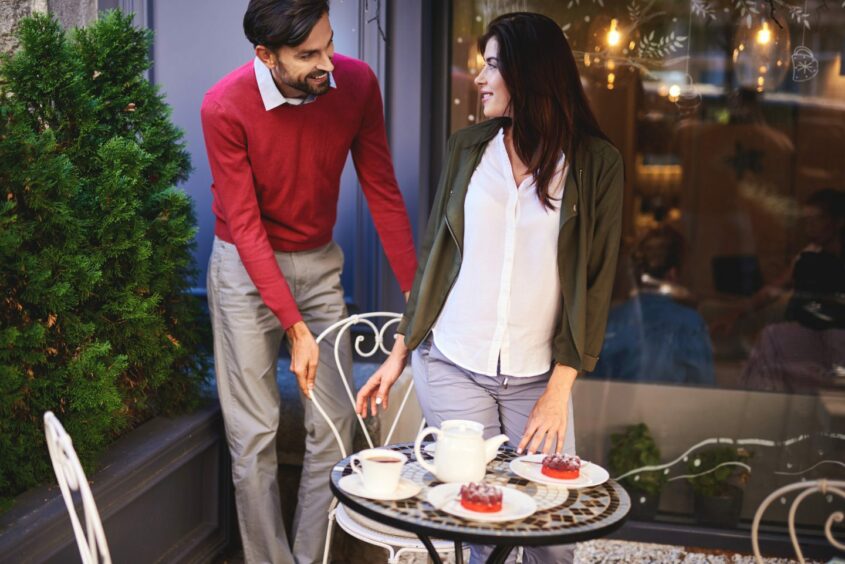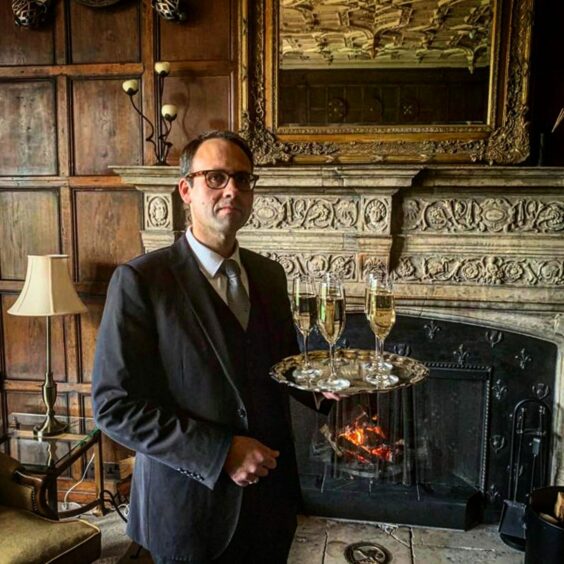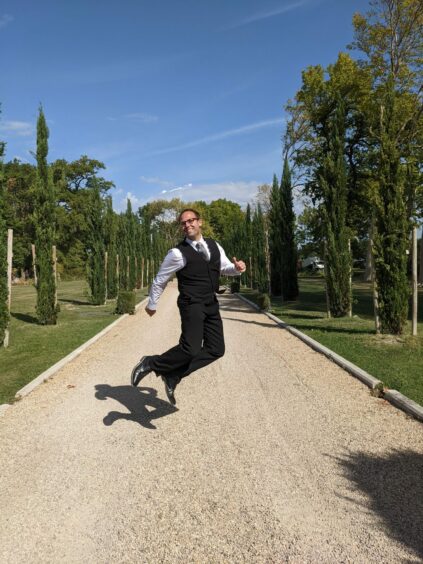I am in the sweaty swathes of hell, punctuated by screaming and the lingering smell of flatulence.
This is soft play and it’s every mum for herself.
My crying four-year-old tells me that a child has pushed him off the rope swing several times, which I witnessed as I dragged myself across that damn inflatable bridge.
Having finally made it off the bouncy slide of doom, I locate the mother.
She is sipping coffee, and barely makes eyes contact.
“Not really much I can do,” she says, going back to her phone.
I wish I could tell my son that adult life will be fairer.
But in my experience, it’s the way of the world these days.
Post pandemic, people are angry and understandably so.
Incandescent with an endless stream of rage, we have forgotten the basic foundation of politeness.
What chance do the next generation have, when technology shapes their interactions?
The last couple of years have provided the perfect ingredients for a bitter cocktail of rudeness.
I spoke with Simeon Rossett, who provides butlers and household staff to private households across Scotland and further afield, alongside Dr Trish Joyce who is a counsellor.
Simeon Rosset, founder of Bespoke Butlers
Simeon is walking on an estate in the Highlands when we catch up, such is the nature of his work.
He sends butlers, chefs and household staff to events, stately homes and castles across the UK – with much of the demand in the Highlands and Aberdeenshire.
“I’ve noticed general rudeness more than ever, and quite often young people aren’t even aware they are doing anything wrong because they haven’t been told,” he says.
“Say you have two people in an interview. One candidate is polite, kind and well mannered.
“Your other candidate isn’t, and both have the same qualifications.
“Who do you think is going to get the job?”
Good manners have even got Simeon out of a sticky situation, after he parked on double yellow lines in Oxford Street, London.
“I had to run into Selfridges to buy something for a client,” Simeon recalls.
“When I came out, the traffic warden was giving me a ticket.
“My response was to say ‘fair enough, I absolutely shouldn’t have parked there, my apologies. Please carry on.’
“The traffic warden said I was the only person who hadn’t shouted at him, so he ripped up the ticket.
“That was because I was well mannered.”
Simeon also believes there is a misconception that the “super wealthy” are not polite.
“In reality, they usually have impeccable manners,” he says.
“It’s very rare I would serve someone without them thanking me, I don’t think the same could be said if I worked in Starbucks.”
But what is the answer?
Simeon’s daughter recently asked for a fork to use when eating birthday cake at a party, which was met with surprise by others.
But for Simeon, it is simply good manners, alongside standing when someone enters a room.
“I think of my grandfather, he wouldn’t leave the house without wearing a tie,” says Simeon.
“He would always say good morning to everyone, standard behaviour for people of that generation.
“How many times do you see people wearing hats indoors, not holding doors open or showing good table manners?
“Yet butlers are certainly as popular as they have ever been in the last few generations.
“People appreciate good service and being looked after.”
Dr Trish Joyce, founder of Grounded Learning
For Dr Trish Joyce, it’s a little more complicated then simply assuming that rudeness is rife.
As a counsellor and also in her day-to-day life, she tries to see the positive.
“We say there is no empathy in this world any more,” says Trish, who sees patients in Aberdeen and further afield.
“But are people angry day-to-day and more self-obsessed?
“Or are we missing the little kindness of people which happens all the time?”
Trish believes it is easy to focus on encounters with those who we may view as non-empathetic, meaning we risk missing the moments when others come to our aid.
“You can be ranting about the person who cut you up at the round-about,” said Trish.
“But what about that person in Union Square who comes over and gives you their ticket, because they’ve still got an hour left of parking on it?”
Trish also believes that regional differences can play a part, with rudeness mistaken for a more reserved nature.
“I come from the west coast, and if you’re stood in a queue anywhere in Glasgow you can forget having a quiet time,” says Trish.
“The east coast is quieter, people are just more reserved.”
Manners across the decades
Saying please and thank you remains the bare minimum, but other examples of politeness are slowly fading away.
Removing your hat for example, was seen as a mark of respect.
Gentleman always removed their hats in church, when a funeral cortege passed by, when in someone’s home and in the presence of a lady.
How you treat serving staff is widely considered a good indication of your character, but standing when someone else enters a room is far less common.
Writing thank-you letters, eating at a dinner table and using a knife and fork in the correct way is also becoming less practiced.
Some experts believe this can only be a good thing, as manners adapt to the world around us.








Conversation